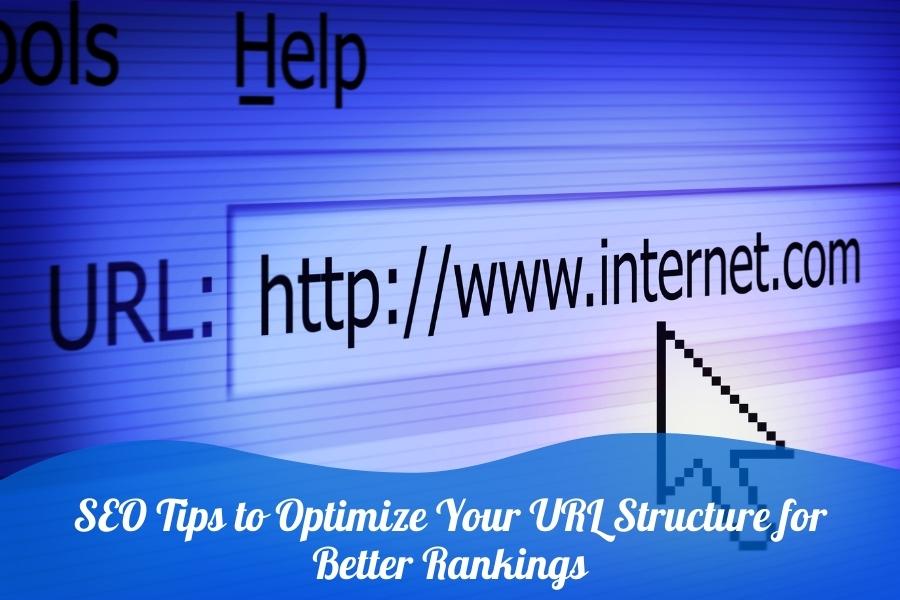
When it comes to SEO, every detail matters, and one of the most often overlooked elements is your website’s URL structure for Better Rankings. The structure of your URLs plays a crucial role in both user experience and search engine optimization (SEO). A well-optimized URL structure not only makes your website easier to navigate but also helps search engines understand the content of your pages more effectively. In this blog post, we will discuss practical SEO tips to optimize your URL structure, boosting your website’s chances of ranking higher in search results.
Why URL Structure Matters for SEO
Before diving into specific tips, let’s first explore why your URL structure is important for SEO. Here are a few reasons:
Improved Crawlability: Search engine crawlers analyze the URL structure to understand the content of your pages. A logical, organized URL helps search engines crawl your website efficiently and index pages correctly.
Better User Experience: A clear and descriptive URL helps users understand what to expect on the page. This improves their experience and can lead to higher click-through rates (CTR) from search results.
Keyword Relevance: URLs with relevant keywords signal to search engines what your content is about. This helps improve your rankings for those target keywords.
Link Sharing: Easy-to-read URLs are more likely to be shared by users, enhancing your chances of getting backlinks.
Now, let’s look at some SEO tips to optimize your URL structure for better performance in search rankings.
Keep URLs Short and Simple
Short and simple URLs are not only easier to read but also more user-friendly. Google recommends keeping URLs under 100 characters. Long URLs can be cut off in search results, making them look cluttered and less appealing to users.
A simple URL is easier to share, type, and remember. Aim for a concise structure that includes only the essential elements: the domain name, relevant keywords, and the page or post name.
For example, instead of this:
https://www.example.com/seo-tips-url-structure
This shorter URL is more user-friendly and focused on the main topic.
I have an SEO Marketing company in India, named as Novel Web Solution.
Include Relevant Keywords in Your URL
Keywords are an essential part of SEO, and your URL should include the main keyword that describes the content of your page. Search engines use the URL to understand the topic of the page, so including relevant keywords can help improve your rankings for those terms.
For example, if you have a blog post about optimizing URL structures, your URL should contain “url-structure” or “optimize-url” to make it clear to both search engines and users what the page is about.
For instance:
https://www.example.com/optimize-url-structure
By including target keywords in your URL, you signal to Google that the page is relevant for that term.
Use Hyphens to Separate Words
When it comes to separating words in your URL, always use hyphens (-) instead of underscores (_). Google treats hyphens as space, but underscores are not treated as separators, which can make it harder for search engines to understand your URL structure.
For example:
Correct: https://www.example.com/seo-tips-for-beginners
Incorrect: https://www.example.com/seo_tips_for_beginners
By using hyphens, you make it easier for both users and search engines to read and interpret your URL.
Avoid Using Special Characters
Special characters such as question marks, exclamation points, or ampersands can make your URL harder to read and can negatively impact SEO. While special characters are sometimes necessary (such as in tracking parameters), it’s best to keep URLs clean and free of these symbols when possible.
For example:
Bad: https://www.example.com/seo?query=optimize&date=2025
Good: https://www.example.com/seo-tips-optimize-url
A simple, clean URL is easier to share, remember, and navigate, which leads to a better UX Design (user experience) and potentially better SEO rankings.
Use a Logical Hierarchy in Your URL Structure
Organizing your URLs into a logical hierarchy helps both search engines and users navigate your website more easily. It’s important to use categories and subcategories to group related content. This also helps Google understand the relationship between different pages on your website.
For example, if you have an online store, the URL structure might look like this:
https://www.example.com/clothing/men/shirts
This structure makes it clear that the page is about men’s shirts, and the content is organized within the broader category of clothing.
On the other hand, a disorganized URL like this:
https://www.example.com/product12345
Doesn’t offer any clear context to either users or search engines.
6. Avoid Keyword Stuffing
While it’s important to include relevant keywords in your URLs, avoid keyword stuffing—using too many keywords in an attempt to manipulate search rankings. Google may see this as spammy behavior and could negatively impact your rankings.
For example:
Bad: https://www.example.com/seo-seo-tips-seo-guide-best-seo-strategy
Good: https://www.example.com/seo-tips-for-beginners
The second example is cleaner, more readable, and still contains relevant keywords without unnecessary repetition.
Use HTTPS for a Secure URL Structure
In 2014, Google confirmed that HTTPS is a ranking factor. Websites with HTTPS (secure HTTP) encryption are prioritized over HTTP sites. If you haven’t already, make sure your website uses HTTPS by installing an SSL certificate.
An HTTPS URL looks like this:
https://www.example.com/seo-tips
In contrast, an HTTP URL looks like this:
http://www.example.com/seo-tips
Besides helping with SEO, HTTPS also assures your users that their data is secure, which is crucial for building trust and improving conversion rates.
Conclusion
Optimizing your URL structure for Rankings is an often-overlooked yet powerful element of SEO. By following these SEO tips—keeping URLs short, including relevant keywords, using hyphens to separate words, avoiding special characters, and maintaining a logical structure—you can help both search engines and users understand your content more effectively. With a well-optimized URL structure, your website will be better positioned to rank higher in search results, leading to more visibility, traffic, and conversions.



